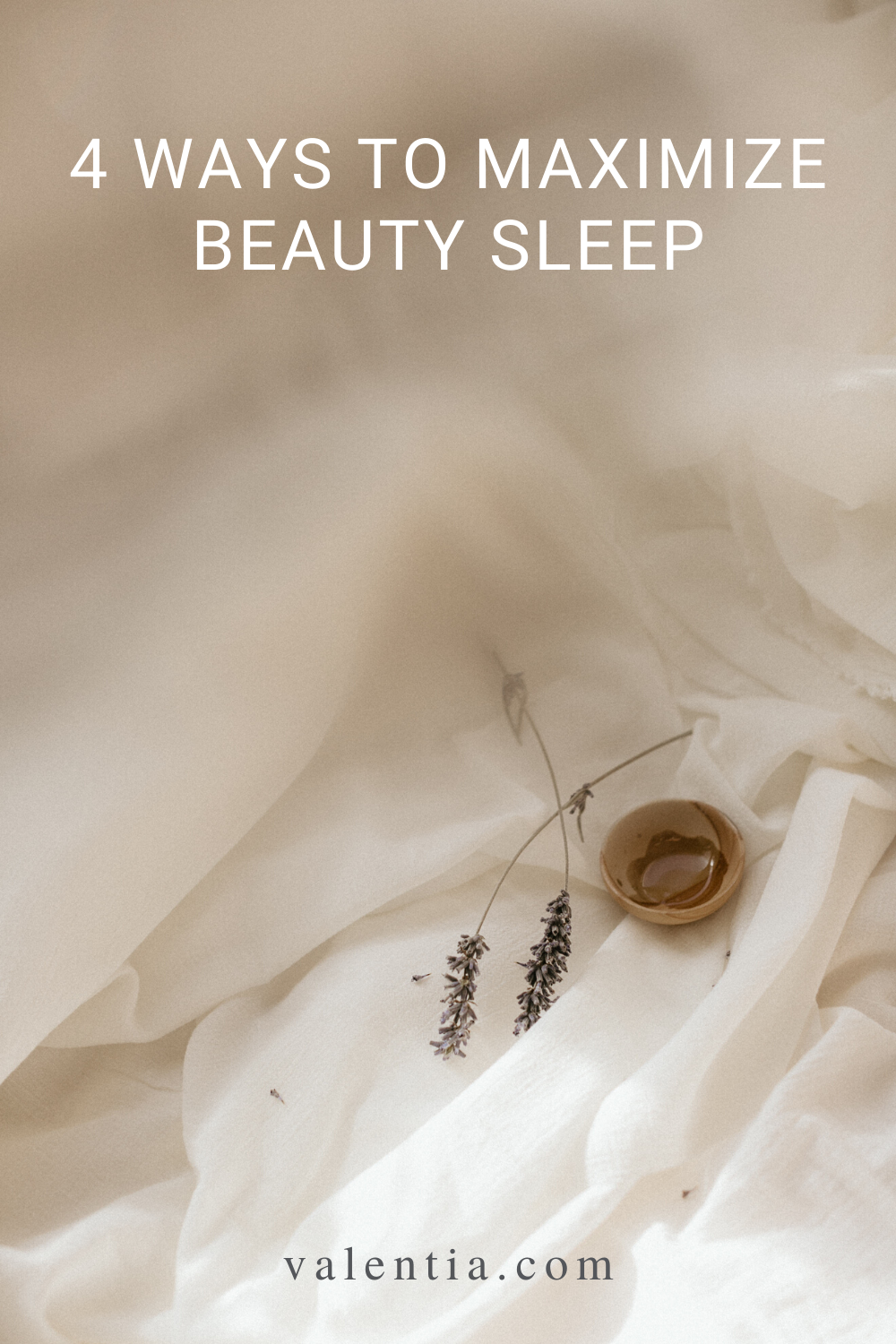
You’re probably well-acquainted with what can cause a poor night’s sleep: a binge-watching session you just couldn’t pause, “just one glass” of wine that turned into three, noisy neighbors, a late afternoon espresso, a fussy child, and, of course, the general weight of the world. While we can’t offer solutions for any of those nuisances (sorry!), we do have some simple tips to help you transform your evening routine for your best sleep yet.

Is Your Bedroom Set Up for Sleep?
Your bedroom should be your sanctuary—relaxing, dark, cozy, and if possible, clear of clutter. Make the necessary upgrades to improve your space so that it’s inviting and calming, not an afterthought. It’s tempting (especially now) to use your bed as an extension of your home office, but keep it as a haven for sleep and intimacy so that every time you enter the bedroom, your brain gets the cue to wind down.
Are You Drinking Enough Water?
Seemingly innocent fruit juices are often packed with just as much sugar as a can of soda. That means when you’re feeling thirsty throughout the day, the best thing you can do for your body is to reach for a glass of water. To put it simply, fluid intake affects sleep. If you’re dehydrated, dry mouth and nasal passages can lead to snoring or a sore throat. It’s not just a lack of water that causes dehydration, though. Overdoing it on the alcohol can also be to blame. And let’s not even get into the ensuing hangover.
Do You Commit Any of These Bedtime Don’ts?
Getting ready for bed isn’t only putting on pajamas and brushing your teeth, it’s giving your body a break from daily stress. A major offender? The blue light that emanates from the devices we use all day. While all light can disrupt sleep, blue light—what you’re exposed to from a computer, television, phone, or tablet—affects the natural sleep cycle, so using devices two to three hours before bed may make it harder to fall asleep.
Is Your Body Ready for Bed?
You’re well-hydrated, you’ve turned off screens, and maybe you’ve taken a relaxing bath. What next? If you feel a little keyed up or have trouble unwinding, meditation or a cup of something warm and uncaffeinated can help ease your mind. Diffusing lavender oil encourages rest and relaxation, and spritzing a little around your pillow can aid in sending you to dreamland.
Another addition to your sleep toolbox is magnesium oil, which helps calm the body. This essential mineral keeps your body’s systems humming, but many of us are magnesium deficient, which can be to blame for achiness, low energy, and general soreness. Adding magnesium pre-snooze can be relaxing as well as stress relieving. Magnesium is best absorbed through the skin, so massaging some of this oil onto your feet or legs before bed may help you drift off more quickly.
One last thing to consider is your skincare routine. While you’re sleeping, your skin is regenerating and repairing, so after you’ve washed your face, don’t forget serums, moisturizer, and oils, as you’ll be able to maximize their absorption at night.
Start the soothing with a layer of nourishing serum like Valentia Vitamin E Serum, a light but hydrating moisturizer like Vitamin C Cream, and finish with Prickly Pear Oil for deep moisturization or learn more about it by clicking here, or Chia Seed Oil if you prefer something a little lighter.
Sweet dreams—and enjoy your rest!










